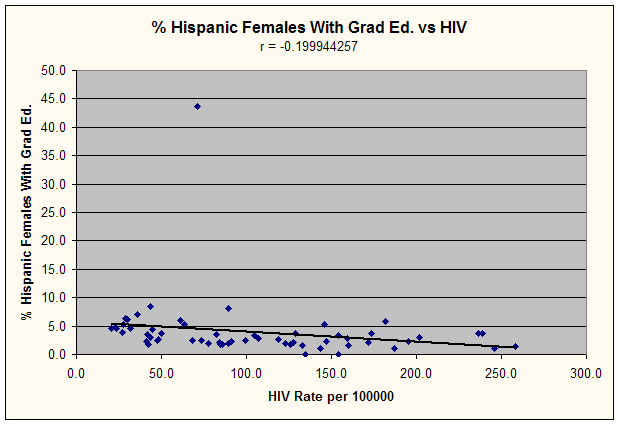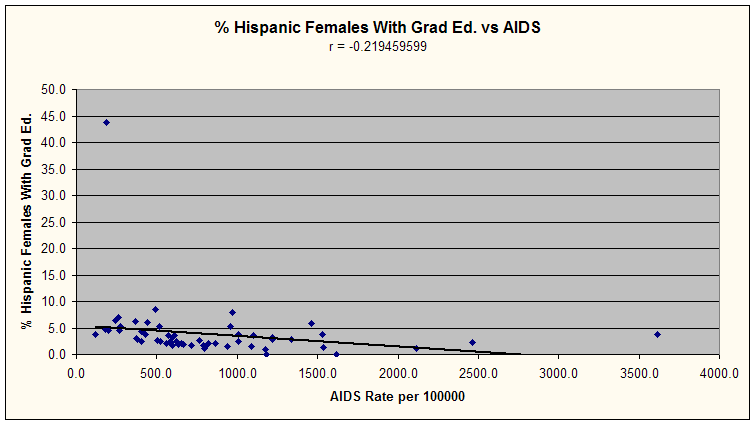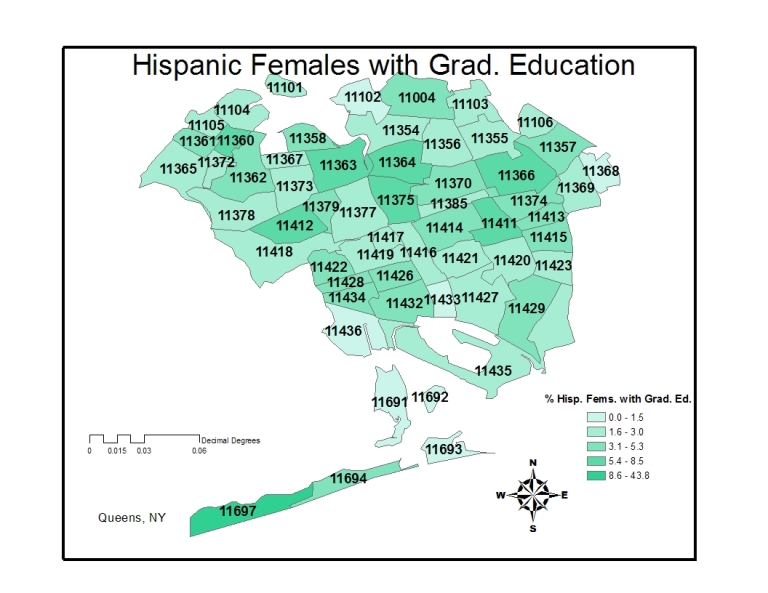





Education
This was one of the few correlations that went against commonly held belief. Generally, society
acknowledges that the more time a person spends in a learning institution, the less likely they will be
uninformed on health issues. The correlated demographics consisted of Hispanic males
(r = 0.091968, r = 0.21702), black males (r = 0.18998, r = 0.3707), and white males
(r = 0.1392, r = 0.17091) 25 years and older who had attained at least a high school diploma. Compare
these statistics to males also 25 and older with at least a graduate degree and the correlations all decrease
among Hispanics (r = -0.2018, r = -0.2084), blacks (r = -0.2317, r = -0.2397) and whites
(r = -0.25948, r = -0.25354). The correlation coefficients between the men with varying levels of education
and HIV/AIDS all exhibited a general trend. Among all the correlations, more schooling was connected with
a more negative correlation with HIV/AIDS. The only exception was Hispanic females when correlated
with HIV. This was a surprising development because most people would assume that with more education,
a person will know more about how to deal with health issues. Even more surprising was the fact that for
some reason only Hispanic women did not follow the general trend. The reason for this anomaly is difficult
to pinpoint, but one possibility could be that in Hispanic culture women are subservient to their husbands
regardless of their level of education. More research needs to be done to get a better idea of why Hispanic
women did not correlate the same way with HIV.
| Plot5
|
Plot6
|
| Plot18
|
Plot19
|
| Map5
|
Map6
|